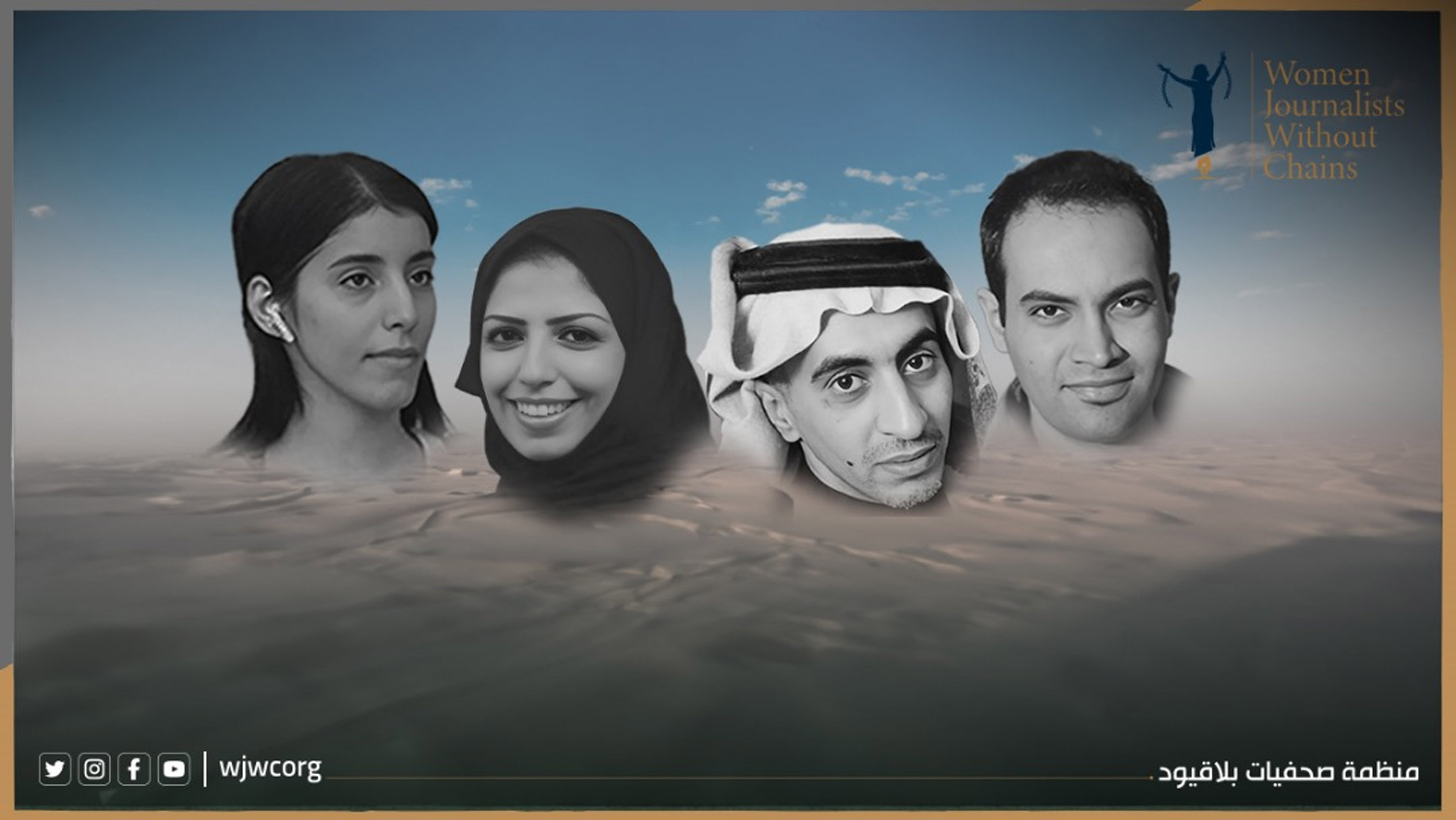Wjwc News

WJWC Urges Saudi Arabia to Free Conscience Prisoners as IGF 2024 Opens
Women Journalists Without Chains (WJWC) has called on the Saudi Arabian government to release all prisoners of conscience detained for expressing their opinions.
This urgent appeal coincides with the upcoming United Nations Internet Governance Forum (IGF) 2024, set to commence in Riyadh on Sunday, December 15. While the four-day event places Saudi Arabia under an international spotlight, the government continues to imprison, detain, and torture individuals accused of violating restrictive online policies.
The organization emphasized that Saudi Arabia must demonstrate its commitment to the forum's principles by releasing those detained solely for online criticism. It called for concrete steps to curb the government’s absolute authority over online activities and ensure unrestricted access to information. Hosting a global event on internet governance, the organization argued, should not serve as a means to whitewash human rights violations or obscure the widespread repression within the Kingdom.
The decision to host the IGF in Saudi Arabia has raised serious concerns about the safety and participation of civil society organizations. Human rights advocates, particularly those focused on internet freedom and security, face significant risks, including detention and digital surveillance. Saudi authorities have increasingly relied on spyware, further endangering activists and attendees. Such practices severely limit the ability of civil society groups to engage freely and meaningfully in global discussions on internet governance.
This contradiction between Saudi Arabia’s actions and the forum’s mission is stark. According to the Tunis Agenda for the Information Society, internet stability and security must coexist with privacy protections and freedom of expression, principles grounded in the Universal Declaration of Human Rights and the Geneva Declaration of Principles. By suppressing these rights, Saudi Arabia undermines the very values the forum seeks to promote.
Nobel Peace Prize-winning head of WJWC, Tawakkol Karman, strongly criticized Saudi Arabia’s hosting of the forum. She stated that the Kingdom’s intolerance of online dissent, where even mild criticism of the government can lead to enforced disappearances, torture, or severe penalties, stands in direct opposition to the forum’s ideals. In many cases, punishments include life imprisonment or even the death penalty, highlighting the grave risks faced by critics.
Karman further urged Saudi Arabia to ensure transparency and protection for all forum participants, including their freedom of movement and expression. She stressed the importance of safeguarding civil society representatives, who may face increased targeting or repression upon returning to their home countries.
Women Journalists Without Chains has documented numerous cases of individuals imprisoned for exercising their right to free expression online. These include:
- Salma al-Shehab: A doctoral student sentenced to 34 years in prison in August 2022 for her activity on X (formerly Twitter), including following dissidents, retweeting critical posts, and advocating for women’s rights.
- Manal al-Otaibi: Sentenced to 11 years in January 2024 for social media posts supporting women’s rights.
- Mohammed bin Nasser al-Ghamdi: A former teacher sentenced to death in July 2023 for tweets criticizing government corruption and defending detainees. His sentence was later commuted to 30 years in prison in September 2024.
- Abdulrahman al-Sadhan: An aid worker sentenced in April 2020 to 20 years in prison, followed by a 20-year travel ban, for satirical tweets.
- Sarah al-Jar: A medical student sentenced to 27 years in prison and an equal travel ban in November 2023 for expressing her opinion online and defending women’s rights.
- Fatima Al-Shawarbi: A blogger sentenced to 30 years in prison and a travel ban for using Twitter to criticize authorities and discuss unemployment.
Furthermore, Saudi authorities continue to target female human rights activists who use social media to express their opinions or advocate for women’s rights. Among them are Asmaa Al-Subaie, detained since June 2021; Amani Al-Zain, detained since May 2020; Rina Abdel Aziz, Najwa Ahmed Al-Hamid, and Yasmine Al-Ghafili, all detained since May 2021; and Noura Al-Qahtani, who has been detained since July 2021 and sentenced to 45 years in prison for criticizing the Saudi Crown Prince.
WJWC outlined several urgent demands for the Saudi government and IGF organizers:
- Immediate release of all individuals detained for online activities, demonstrating a genuine commitment to improving internet governance and human rights.
- Guarantee safety and freedom of movement for all participants, especially civil society representatives, ensuring their right to express opinions and engage in peaceful protest.
- Openly discuss Saudi Arabia's human rights record, including the suppression of online dissent and extensive surveillance targeting citizens and exiles.
- Implement binding measures to curb government overreach, ensuring universal access to information and upholding freedom of expression and privacy.
The IGF is expected to draw over 10,000 participants from 170 countries, with more than 1,000 international speakers and approximately 300 sessions focused on internet governance trends and policies. Women Journalists Without Chains argues that for Saudi Arabia to credibly host such an event, it must demonstrate a genuine commitment to the forum’s values by addressing its alarming human rights record.
By taking immediate and meaningful steps to release prisoners of conscience, protect civil society, and uphold freedom of expression, Saudi Arabia can begin to align its actions with the principles of internet governance and human rights. Failure to do so risks exposing the IGF as an empty gesture, overshadowed by the country's ongoing repression.
